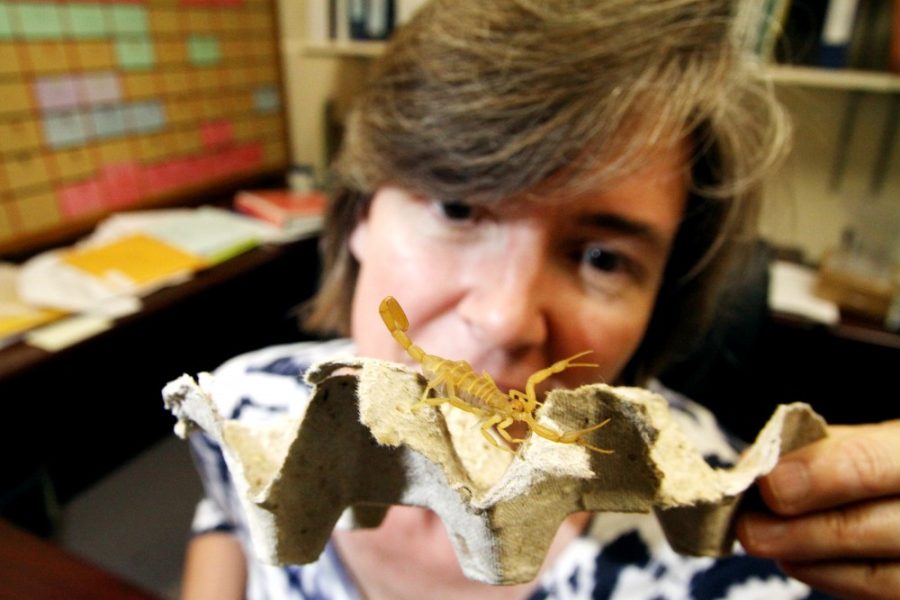Bark scorpion stings used to mean breathing tubes, sedation and several-day stays in the intensive care unit for children brought to UMC.
To combat this, UA researchers and doctors spent 12 years developing protocol and testing an anti-venom developed in Mexico that reduces treatment time to a matter of hours. The Food and Drug Administration approved Anascorp on Aug. 3, making it the first drug approved specifically for scorpion stings in the United States.
About 11,000 people call Arizona poison centers after being stung by scorpions each year, according to Keith Boesen, managing director of the Arizona Poison and Drug Information Center. Bark scorpions are the only scorpions in North America to produce life-threatening symptoms, which are most common in children, he said.
The venom affects nerve communication and can make victims jerk, thrash and drool, according Dr. Andreas Theodorou, chief medical officer at University Medical Center. Victims were commonly kept in the intensive care units until their bodies flushed the toxins out naturally.
“We’d have to give them an unbelievable amount of sedatives just to keep children controlled and in bed,” said Theodorou, a member of the research team. “They’d spend a day battling the life-threatening effects of the venom and then another day or two battling the effects of the sedation.”
Another anti-venom was available in some rural hospitals, but it was not approved by the FDA and only offered as a public service, according to Dr. Leslie Boyer, director of the Venom Immunochemistry, Pharmacology, and Emergency Response Institute and lead researcher for the project.
Boyer found the anti-venom when she traveled to Mexico in 1999. She returned to Tucson and began developing a proposal to test its effectiveness.
A researcher from Arizona State University, who was nearing retirement, produced the original anti-venom, but she only produced enough to last until 2004.
“We realized we had to rush if we were going to replace the dwindling supply before it ran out,” Boyer said.
The testing started by comparing the symptoms of 15 children in Tucson hospitals who were either given the anti-venom or a placebo. The study found that the anti-venom usually resolved symptoms within four hours and prevented the need for invasive measures like ventilators.
Boyer then expanded the study to include 27 hospitals across the state, with another one in Nevada. The Arizona Poison and Drug Information Center enrolled all of the patients and kept track of data.
“The person had to be willing to be a test subject,” Boesen said. “People started showing up at certain hospitals because they were the only ones participating in the study.”
Boyer said the FDA’s approval came as a relief.
“You never know until you are done with the FDA,” Boyer said.
The anti-venom will be available on the market within a few weeks, Boesen said. The poison center will continue post-market studies of the drug.
“That’s how to catch the really, really rare side effects,” he said.
Theodorou said the anti-venom has turned scorpion stings into outpatient injuries. Access to the drug will greatly improve treatment across the state, he said.
“I thought of how many kids had to suffer through the pain and complications of the sting and the parents who watched their children writhe with the effects of the neurotoxin,” Theodorou said. “That can be avoided for future parents and future children.”








